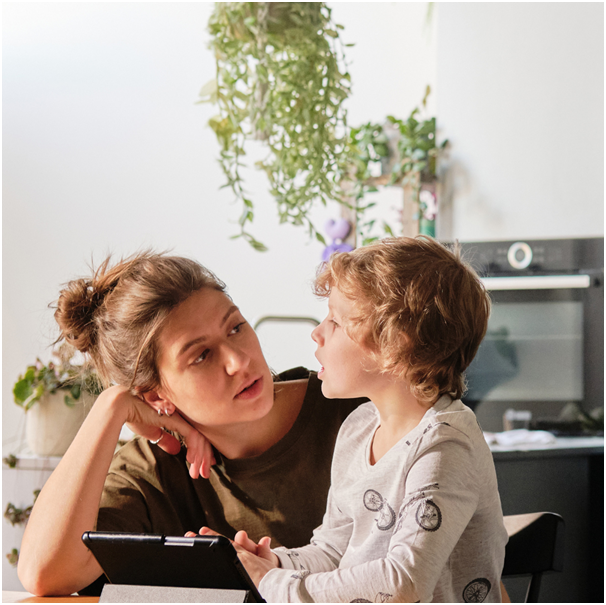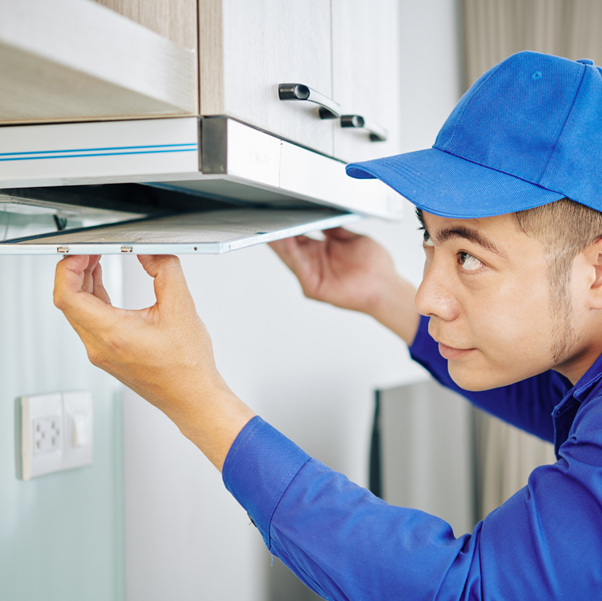As in any kitchen, safety comes first. Cooker hobs and cooker hoods are such an integral part of everyday cooking, making it imperative to use them safely. Discover how to keep your kitchen safe and secure by learning the best practices for hob and hood safety.
Regular Maintenance Matters
The best defence against potential dangers is routine maintenance on your cooker hob and hood. Clean your cooker hood’s filters at least once a month for optimal ventilation. It’s also crucial to routinely inspect cooker hobs for electrical problems or gas leaks. In severe situations, skipping routine maintenance might endanger your safety and compromise your equipment’s performance.
Mindful Operation
Always follow safety precautions when using your cooker’s hob. Ensure the cookware you have is suitable for the sort of cooktop you’re using—gas, electric or induction. Avoid restricting the airflow or blocking the vents on cooker hoods. The use of these necessary kitchen gadgets mindfully not only reduces the risk of accidents but also extends their lifespan.
Ventilation Excellence
An essential component of kitchen safety is adequate ventilation. Invest in a superior cooker hood that can efficiently remove cooking odours and fumes by having enough extraction power. Invest in cooker hoods with cutting-edge filtering technology to ensure your kitchen has better air circulation. In addition to improving safety, adequate ventilation also makes a home healthier.
Gas Safety Precautions
It’s crucial to take extra safety measures if you have a gas cooker. Check for leaks regularly in the gas connections and lines. Learn where the shut-off valve is to know where to look in case of an emergency. When the gas cooktop is in use, keep everything combustible away from it and never leave it alone. These straightforward but essential steps might stop possible gas-related mishaps.
Electrical Considerations for Hobs
Electrical safety is crucial while using electric cooker hobs. Regularly inspect the connectors and power cords for indications of wear or damage. Plugging the cooktop into designated outlets will help prevent overloading electrical circuits. If you see any abnormalities, get expert help to solve the problem. Prioritise electrical safety precautions above all else to prevent fires and electrical faults.

Childproofing Your Kitchen
It is not negotiable to take extra care if you live with small children. Cooker hood safety locks can be installed to keep curious hands from unintentionally turning them on. Turn pot handles away from the front of the hob to prevent accidental spills. Teach kids about the possible risks in the kitchen and stress the need to keep away from cooking appliances.
Emergency Preparedness
Unexpected events can happen even when precautions are taken. Stock your kitchen with a first aid kit and a fire extinguisher. Learn the evacuation routes and protocols in case of emergency. Ensure smoke detectors are operating by giving them routine inspections and tests. The effects of unforeseen events in the kitchen are lessened when one is ready for crises.
Professional Inspection and Repairs
Don’t undervalue the importance of expert examination and maintenance. Arrange for routine inspections by licensed professionals to evaluate the state of your range hood and hob. It is possible to stop little issues from becoming drastic safety concerns by taking immediate action. Putting money into expert upkeep is a proactive step towards a safe and usable kitchen.
Educating Household Members
Maintaining a safe cooking environment requires knowledge. Ensure everyone in the house understands the safety precautions for hobs and kitchen hoods. Emphasise the value of following instructions, from correct usage to emergency protocols. A knowledgeable household can avert mishaps and react properly when they do occur.
Integration of Smart Safety Features
Look for cooker hobs and hoods with modernised safety features. Your kitchen’s overall safety can be improved with the real-time monitoring and alerts that smart appliances can provide. Consider investing in technology that can detect gas leaks or automatically turn off the cooker in the event of overheating. You may feel secure in the kitchen knowing that an extra layer of protection is in place because of these safety features.
Conclusion
It is not just a question of convenience, but also a basic component of competent kitchen management to prioritise cooker hob and cooker hood safety. Following these recommended practices will protect your home from possible dangers and prolong the life and peak functionality of these necessary kitchen equipment. You and your loved ones can cook safely as long as regular maintenance, careful operation, and a dedication to safety are observed.
Contact Light Avenue to take the first step towards a safer, more enjoyable kitchen environment!

